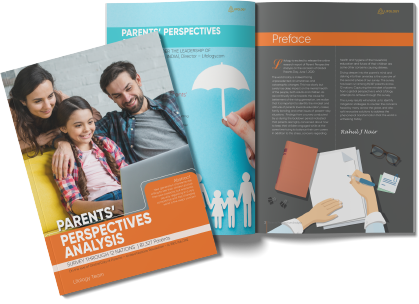As the famous philosopher, Confucius once said: “If your plan is for a year, then plant rice. If your plan is for a decade, then plant trees. But if your plan is for a lifetime, then educate your children.”
Parents invest their hard-earned money in building a solid educational foundation for their children by securing their admission to the best and most popular educational institution in town, which claims to offer the best quality education.
While educating your children, you invest for a lifetime, which calls for wise planning and research.
Quality education is important to bring up a generation with strong moral fundamentals, subject knowledge, and expertise. The education should also arm them with the right attitude, life skills, and competency required to flourish in this technologically and scientifically fast-paced world.
When choosing an educational institution, Lifology.com advises that parents and students should consider some deeper and fundamental facts rather than get attracted by advertisements or promotional brochures. This would spare you a lot of trouble with money, time, and the quality of education.
Though differentiating institutions which cling to their promotional material can be quite difficult, the below-enlisted suggestions can assist you in the process of choosing the most appropriate one.
1.Don’t go by the 20-year-old course list on decade-old college websites
Check and verify whether the institute provides well-researched courses on the subject of your interest. Find out whether these courses are offered with an updated syllabus that meets the needs of the professional world.
2. Don’t let Google be the master of your child’s future
Before blindly going by its promos, learn about the institution well, not just through the internet but also alumni, teachers, and rival institutions.
3. Never go for an institution just because it is near your home
The quality of the education provided and the purpose of your education should be the primary concern.
4. Do not evaluate any institution by the grandeur of its infrastructure
The number of pillars and the colour of its painting do not reflect the quality of education offered.
5. Do not go by the tuition fees
Do not relate the tuition fee with the quality of education as they seldom come in the faithful union.
Believe in the institute’s human resources as the quality and skills of the teachers is what counts in the classroom. Always go for qualified professors who can offer quality education, good morals, and life skills.
6. Never blindly believe the placement details or the list of associate companies
This data may have been collected over the years and may not be of current significance. The data may even be exaggerated. Extensive research is required on the authenticity of the details provided by the institutions. Talk to alumni to better understand the job prospects, honest feedback, and clarity on the details.
7. Don’t go by the accreditation claims
Verify the accreditation of the college and the parameters claimed for accreditation, as well as courses offered and specializations if any.
Do look around if the University offers plenty in the following areas:
- Student life and extra-curricular activities
- Financial aid offered and the credibility of the offers
- A track-record of producing brilliant professionals
- Admission record and graduation rate as well as drop out rate
- Quality of college premises, library management, lab facilities, health and safety, governance, student services, etc.
Though it is not easy to do extensive research on all aspects of a college or access all its details, becoming aware of and collecting considerably good information on the above-listed parameters before committing to an institution will definitely help you make an informed decision and narrow down the list of most appropriate colleges.








